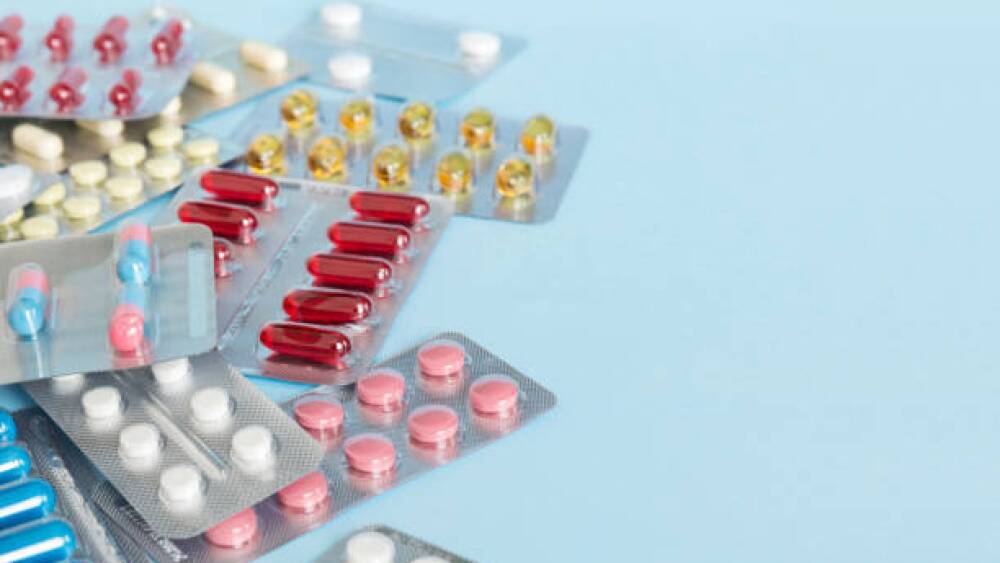MEXICO CITY, Aug. 6 /PRNewswire-FirstCall/ -- GlaxoSmithKline (GSK) announced today that a review of data from over 14,600 patients in 54 clinical studies showed no increased risk of myocardial infarction associated with the anti-HIV medication abacavir. GSK conducted this review upon learning that the analysis undertaken by the D:A:D cohort had found an unexpected but potential association between highly active antiretroviral therapy (HAART) regimens containing abacavir and an increased risk of heart attack. GSK's review of its clinical trial database was presented today at the International AIDS Conference in Mexico City.
The analysis was conducted from a GSK internal database including data from 54 clinical trials. The review pooled data from 9,639 subjects on abacavir-containing HAART and 5,044 subjects on non-abacavir HAART. Overall, less than 30 heart attacks had been reported across the abacavir and non-abacavir groups and no increased risk of heart attack associated with abacavir was observed.
"GSK took the responsibility to examine the existing body of clinical data available to us as soon as we learned the results of the D:A:D cohort," said John Pottage, M.D., Vice President Global Clinical Development at GlaxoSmithKline. "The D:A:D findings were certainly unexpected and are inconsistent with what we have seen with our own data. GSK believes at this time that the D:A:D data are inconclusive."
In the GSK analysis the frequency of coronary artery disorders for both groups was very low and similar to the general population: 2.5 events per 1,000 people in the abacavir HAART and 4 events per 1,000 people in the non-abacavir HAART. Further, the frequency of heart attacks was 1.1 per 1,000 people in the abacavir HAART and 1.4 per 1,000 people in the non-abacavir HAART. GSK's review of clinical and pre-clinical data to date did not reveal a plausible biologic mechanism for the results seen in the D:A:D study.
Inflammatory biomarkers that may be associated with cardiac risk, hs-CRP and IL-6, were evaluated from the HEAT trial, a large, randomized, controlled study of Epzicom and Truvada. The levels of these important biomarkers decreased from baseline at both 48 and 96 weeks for both abacavir and tenofovir. Additionally, there were no significant differences between the active comparitors in the study.
NRTIs currently constitute the cornerstone of combination antiretroviral therapy with abacavir recognized as a key component and recommended in treatment guidelines globally. GSK could not replicate the findings of the D:A:D analysis. In totality, the available data from the observational cohort and from clinical trials are inconclusive. It is clear however, that HAART overwhelmingly provides substantial survival benefits to HIV patients. As with all medications, physicians and patients must weigh the risks of HIV disease against the overall benefits and risks of the antiretroviral medicines available. As a precaution, the underlying risk of coronary heart disorder should be considered when prescribing antiretroviral therapies, including abacavir, and action taken to minimize all modifiable risk factors (e.g., hypertension, hyperlipidemia, diabetes mellitus, and smoking).
About Abacavir
Abacavir sulfate is a nucleoside reverse transcriptase inhibitor with a proven safety and efficacy profile as part of an HIV treatment regimen. Abacavir is a key component in Ziagen(R), Trizivir(R) and Epzicom(R). The most significant treatment-limiting event known to occur with abacavir is a hypersensitivity reaction, which occurs in approximately eight percent of patients and emerges within the first six weeks of therapy.
Important Safety Information about ZIAGEN
ZIAGEN, in combination with other antiretroviral agents, is indicated for the treatment of HIV-1 infection in adults.
ZIAGEN is one of 3 medicines containing abacavir. Before starting ZIAGEN, your healthcare professional will review your medical history in order to avoid the use of abacavir if you have experienced an allergic reaction to abacavir in the past.
In one study, more patients had a severe hypersensitivity reaction in the abacavir once-daily group than in the abacavir twice-daily group.
ZIAGEN does not cure HIV infection/AIDS or prevent passing HIV to others.
Important Safety Information
ZIAGEN(R) contains abacavir sulfate, which is also contained in EPZICOM (abacavir sulfate and lamivudine) and TRIZIVIR(R) (abacavir sulfate, lamivudine, and zidovudine). Patients taking ZIAGEN may have a serious allergic reaction (hypersensitivity reaction) that can cause death. Your risk of having this allergic reaction is much higher if you have a gene variation called HLA*B5701 than if you do not. Your doctor can determine with a blood test if you have this gene variation.
If you get a symptom from 2 or more of the following groups while taking ZIAGEN, stop taking ZIAGEN and call your doctor right away:
Carefully read the Warning Card that your pharmacist gives you and carry it with you at all times.
If you stop ZIAGEN because of an allergic reaction, NEVER take ZIAGEN or any other abacavir-containing medicine (EPZICOM, TRIZIVIR) again. If you take ZIAGEN or any other abacavir-containing medicine again after you have had an allergic reaction, WITHIN HOURS you may get life-threatening symptoms that may include very low blood pressure or death.
If you stop ZIAGEN for any other reason, even for a few days, and you are not allergic to ZIAGEN, talk with your healthcare professional before taking it again. Taking ZIAGEN again can cause a serious or life-threatening reaction, even if you never had an allergic reaction before. If your healthcare professional tells you that you can take ZIAGEN again, start taking it when you are around medical help or people who can call a doctor if you need one.
A build up of lactic acid in the blood and an enlarged liver, including fatal cases, have been reported.
Do not take ZIAGEN if your liver does not function normally.
Worsening of liver disease (sometimes resulting in death) has occurred in patients infected with both HIV and hepatitis C virus who are taking anti-HIV medicines and are also being treated for hepatitis C with interferon with or without ribavirin. If you are taking ZIAGEN as well as interferon with or without ribavirin and you experience side effects, be sure to tell your doctor.
When you start taking HIV medicines, your immune system may get stronger and could begin to fight infections that have been hidden in your body, such as pneumonia, herpes virus, or tuberculosis. If you have new symptoms after starting your HIV medicines, be sure to tell your doctor.
Changes in body fat may occur in some patients taking antiretroviral therapy. These changes may include an increased amount of fat in the upper back and neck ("buffalo hump"), breast, and around the trunk. Loss of fat from the legs, arms, and face may also occur. The cause and long-term health effects of these conditions are not known at this time.
Some HIV medicines including ZIAGEN may increase your risk of heart attack. If you have heart problems, smoke, or suffer from diseases that increase your risk of heart disease such as high blood pressure, high cholesterol, or diabetes, tell your doctor.
The most common side effects of ZIAGEN include nausea, vomiting, tiredness, headache, diarrhea, trouble sleeping, fever and chills, and loss of appetite. Most of these side effects did not cause people to stop taking ZIAGEN.
For additional important information about ZIAGEN please visit http://www.treathiv.com.
About GlaxoSmithKline
GlaxoSmithKline is one of the world's leading research-based pharmaceutical and healthcare companies and an industry leader in HIV research and therapies. The company is engaged in basic research programs designed to investigate new targets to treat HIV. For full information on GSK's HIV medications, please visit http://www.treatHIV.com.
Cautionary statement regarding forward-looking statements
Under the safe harbor provisions of the U.S. Private Securities Litigation Reform Act of 1995, GSK cautions investors that any forward-looking statements or projections made by GSK, including those made in this announcement, are subject to risks and uncertainties that may cause actual results to differ materially from those projected. Factors that may affect GSK's operations are described under 'Risk Factors' in the 'Business Review' in the company's Annual Report on Form 20-F for 2007.
CONTACT: US Media enquiries, Marc Meachem, +1-919-483-2839, US Analyst -
Investor enquiries, Frank Murdolo, +1-215-751-7002, or European Analyst -
Investor enquiries, David Mawdsley, +44-(020)-8047-5564, all of
GlaxoSmithKline
Web site: http://www.treathiv.com/




